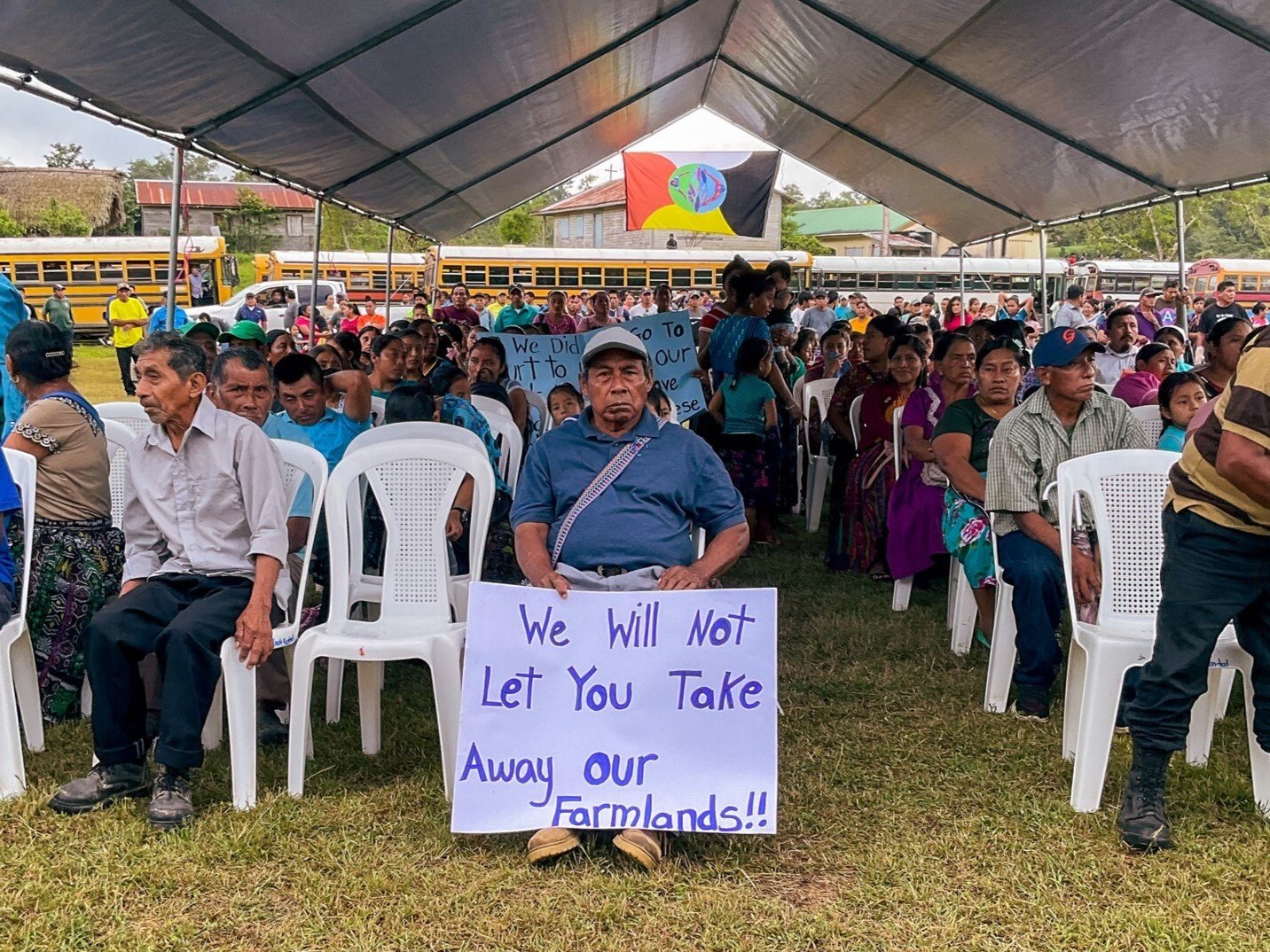
Government of Belize must respect Maya land rights
Minority Rights Group urges the Belizean government to respect the human and property rights of the Maya People of southern Belize and demands the immediate suspension of alarming terms contained in a recent draft policy related to Maya Customary lands that, if enacted, would severely limit Maya lands to a few kilometres at most.
This would have devastating effects on the Maya communities, whose very existence is intimately connected to their lands. Farmlands, hunting and gathering grounds, areas used for resource extraction and areas of spiritual importance would be excluded from their legitimated property. The most recent draft of this policy blatantly violates their rights and has been drafted without their full free, prior, and informed consent as guaranteed by international law.
Adamantly rejecting the draft policy, members of the 41 affected Maya communities in southern Belize gathered in Santa Elena, Toledo District, on 27 January 2024, inviting government representatives to dialogue. The government reaction was hostile, with officials publicly denigrating the community and fuelling anti-Maya sentiments in the dominant society. MRG rejects this characterization of nonviolent resistance and stands in solidarity with the Maya People of southern Belize, the Maya Leaders Alliance and the Toledo Alcaldes Association in their struggle to protect their rights.
We call on the government of Belize to uphold the rule of law by implementing the 2015 Caribbean Court of Justice (CCJ) Consent Order, which recognizes their land rights, in meaningful collaboration and consultation with the Maya communities. Further, implementing this draft policy would violate numerous international conventions and declarations ratified by the Belizean government.
In the most recent draft of the Maya Customary Land Policy, dated 8 December 2023, which would inform the legislative mechanism to protect Maya property rights, the government inserted last-minute language that would affect the Maya of southern Belize. Paragraph 5 severely limits customary village lands to a 1-kilometre circular area for villages with a population up to 500 and only a 2- or 3-kilometre area for larger populations. Paragraph 15 of the draft policy goes further to prevent Maya from owning any land on which a public highway, roadway, National Forest or Park has been created. It would appear that these communities are being deprived of their lands in the name of conservation, overlooking the fact that these areas are so conserved because the Maya, like other indigenous communities globally, are the best protectors and guardians of Mother Earth.
Moreover, Paragraph 9 requires Maya villages claiming land outside the prescribed areas to provide evidence of continuous possession and use of the land for at least 30 years before application. These provisions are unclear and demonstrate the government’s concerning intention to relitigate issues that have already been definitively adjudicated.
The Q’eqchi and Mopan Maya People of southern Belize have been fighting for their land rights in court for decades, beginning in the early 1990s when the government began granting logging and oil concessions to over half a million acres of land within Maya customary lands in the Toledo District, including large concessions granted to Malaysian logging companies. Again, in 1997, Maya ancestral lands were being gazetted by the government itself when it created the Sarstoon Temash National Park without the knowledge of the affected communities. In 2015, after almost two decades of domestic legal cases – leading to the favourable judgments of the Belize Supreme Court in 2007 and 2010, upheld by the Court of Appeal of Belize in 2013, the CCJ ruled in favour of the Maya people in southern Belize, finally affirming the existence of Maya customary land tenure and their rights to the lands they customarily have used and occupied.
The Belizean government tried to avoid implementing these domestic decisions at each stage of the litigation process, bringing appeals to each of them. Moreover, in 2010, it granted oil concessions in the Sarstoon-Temash National Park to the oil company US Capital Energy, which is currently in the exploration phase. It is striking that, should Paragraph 5 of the draft policy be approved, US Capital Energy and other companies would no longer need to obtain the free, prior, and informed consent of Maya communities to undertake their industrial activities outside of the determined circular areas, as these territories would be considered national lands under governmental control.
 David Tomaseti/Unsplash.
David Tomaseti/Unsplash.
